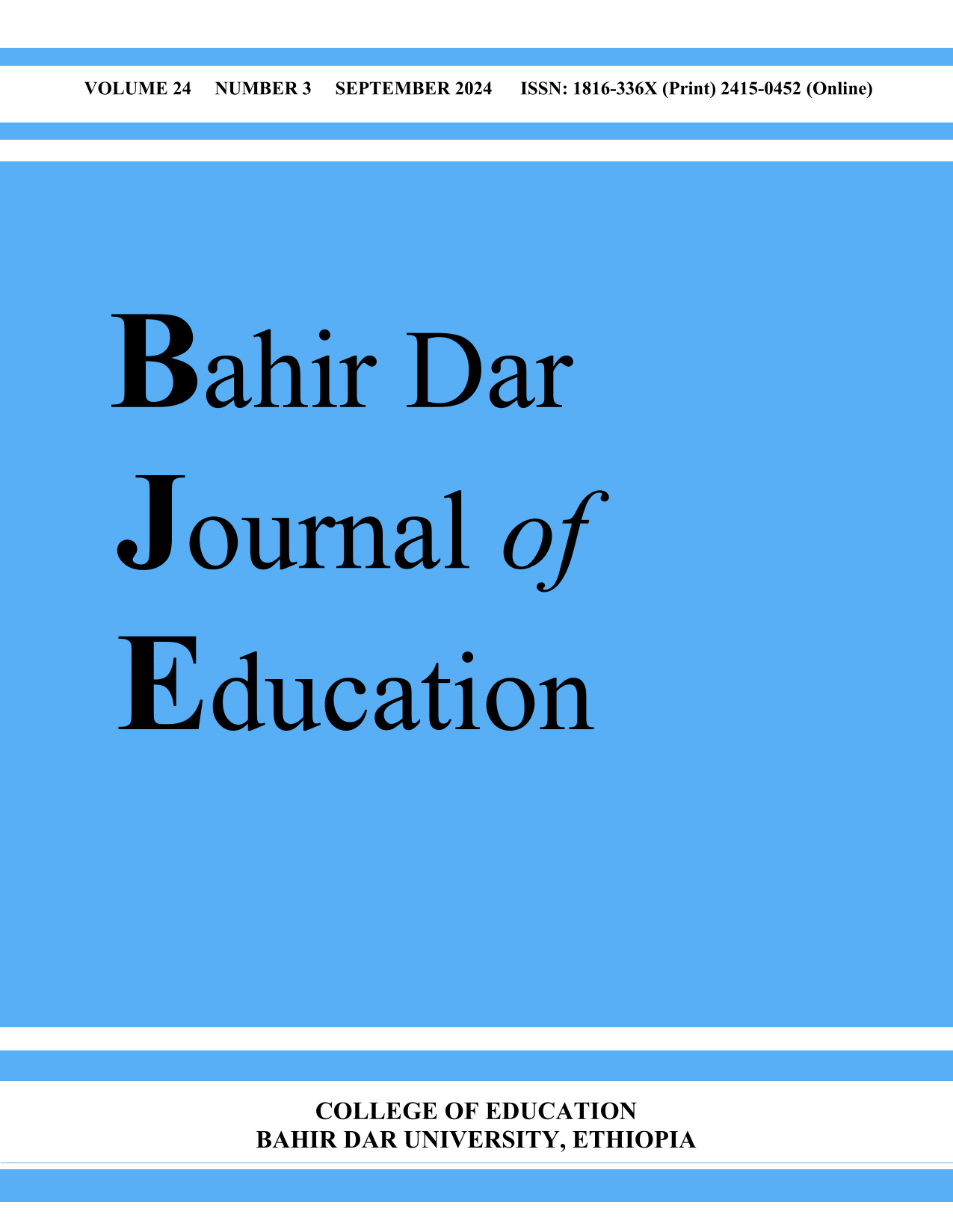Main Article Content
Factors affecting teachers’ practices of inclusive instructional strategies in teaching students with visual impairments in schools of Addis Ababa, Ethiopia
Abstract
This study aimed to investigate factors affecting teachers’ practice of inclusive instructional strategies in teaching students with visual impairments (SVI) in regular schools of Addis Ababa. The study employed a quantitative methodology, with cross-sectional survey design. Data was gathered, using a survey questionnaire, from 421 teachers from 19 primary and 15 secondary schools. A hierarchical multiple linear regression analysis was used to examine the influence of knowledge, self-efficacy & attitudes on the practice of inclusive instruction strategies in teaching SVI in regular schools. The outcomes indicated that teachers had the required knowledge about inclusive instruction strategies. Conversely, a moderate level of teachers’ self-efficacy (M=3.00, SD=1.01) in teaching SVI and favorable attitudes towards inclusion of SVI (M=3.92, SD=0.64) were found in this study. Similarly, this study demonstrated a moderate level of teachers’ practice of inclusive instruction strategies in teaching SVI (M=2.69 out of 4, SD=0.83). Teachers’ self-efficacy and attitude were found to be significant predictors of practice, while knowledge was not a significant predictor. Self-efficacy accounted for 25.5% of the variance in practice, which was the most significant predictor of practice. All the independent variables together explained 31.4% of the variance in practice. Conclusion and possible implications for practice were indicated.




